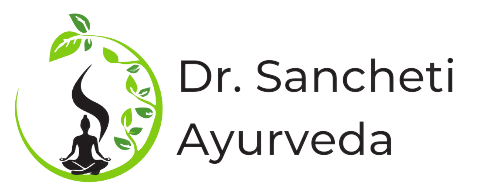Embracing Balance: Ayurvedic Insights on Managing PCOS
Introduction:

Hormonal disorders are difficult and complex to get rid off for both allopathic and holistic systems of medicine. Polycystic Ovary Syndrome (PCOS) is a common hormonal disorder affecting individuals assigned female at birth. Characterized by irregular periods, ovarian cysts, and hormonal imbalances, PCOS can impact fertility and overall well-being. While conventional treatments focus on symptom management, Ayurveda offers a holistic approach to address the root causes and promote balance.
Understanding PCOS through Ayurvedic Lens:
1. Dosha Imbalance:
Ayurveda, the ancient system of natural healing, views PCOS as an imbalance in the doshas—Vata, Pitta, and Kapha. Understanding one’s unique constitution is key to personalized treatment. Aggravated Vata and Kapha dosha prevent the maturation of the follicles in the ovaries. These immature follicles stay at the ovaries as cysts. Hence it becomes necessary to manage Vata and Kapha Dosha.
2. Agni (Digestive Fire) and Toxins:
Ayurveda emphasizes the role of Agni in metabolism. Imbalanced Agni can lead to the accumulation of Ama (toxins), contributing to PCOS. Dietary and lifestyle adjustments aim to ignite Agni and eliminate Ama.
Ayurvedic Strategies for Managing PCOS:
1. Balancing Diet:
-
- Incorporate warm, cooked foods to pacify Vata and Kapha. Have them fresh.
- Avoid oily, spicy, fermented food, bakery products, junk food.
- Try having your dinner before sunset.
2. Lifestyle Adjustments:
- Yoga and Exercise:
- Regular exercise, especially yoga, enhances circulation and balance hormones.
- Adequate Sleep:
- Prioritize quality sleep to support hormone regulation.
3. Herbal Support:
Herbs like Shatavari, Ashwagandha, Brahmi, Shankhapushpi, Shatapushpa if taken under the observation of an Ayurvedic practitioner helps to manage hormonal levels and eventually PCOS.
4. Stress Management:
- Mindfulness and Meditation:
- Stress reduction is crucial; practices like meditation and mindfulness can be beneficial.
5. Detoxification:
- Panchakarma:
1. Vamana (Therapeutic Vomiting):
- Purpose: Eliminates excess Kapha dosha.
- Benefits for PCOS: Reduces congestion and stagnation, promoting hormonal balance.
2. Virechana (Purgation):
- Purpose: Eliminates excess Pitta dosha and toxins.
- Benefits for PCOS: Cleanses the liver and digestive system, supporting detoxification and hormonal regulation.
3. Basti (Enema Therapy):
- Purpose: Balances Vata dosha.
- Benefits for PCOS: Nourishes and strengthens the reproductive system, addressing underlying imbalances.
4. Nasya (Nasal Administration):
- Purpose: Targets imbalances in the head and neck.
- Benefits for PCOS: Improves hormonal communication and reduces Vata-related symptoms.
5. Rakta Mokshana (Bloodletting):
- Purpose: Purifies the blood.
- Benefits for PCOS: Enhances circulation, reduces inflammation, and supports hormonal balance.
Panchakarma and Lifestyle Changes:
Beyond the physical therapies, Panchakarma emphasizes holistic lifestyle adjustments, including dietary modifications, stress management, and daily routines. By addressing these aspects, individuals with PCOS can experience a more comprehensive and sustainable approach to well-being.
Personalized Ayurvedic Consultation:
While Ayurvedic principles offer general guidance, a personalized approach is paramount. Consulting with an Ayurvedic practitioner helps determine an individual’s unique constitution and tailor treatment plans accordingly.
Conclusion:
Ayurveda’s holistic approach to PCOS goes beyond symptom management, a repair from the roots and focusing on restoring balance to the body and mind. By embracing Ayurvedic principles, individuals with PCOS can embark on a journey towards sustainable well-being.
Connect with us to explore personalized Ayurvedic solutions for PCOS. Your path to balance and wellness awaits.
Click below to book an appointment with us.


